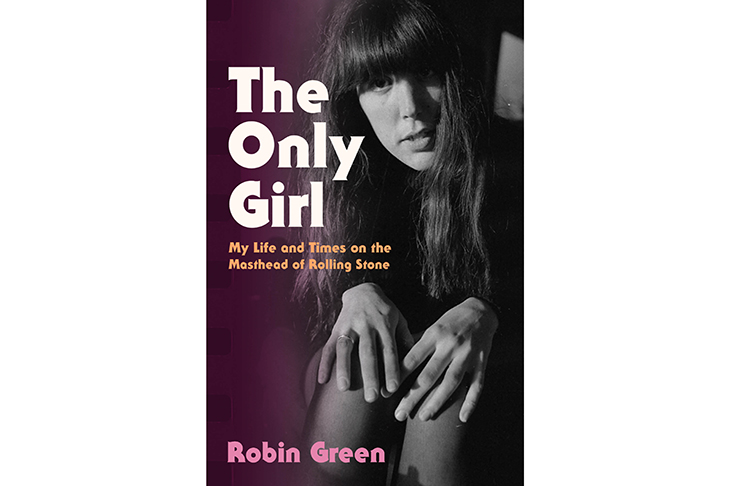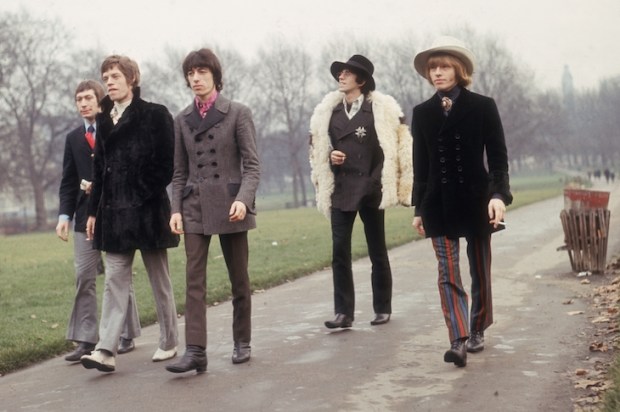The last time I saw a copy of the New Musical Express — the ferociously influential 1970s pop paper which plucked me from working-class provincial obscurity at the age of 17 and set me on the radiant way to fame, fortune and utter fabulousness — it was in a rain-lashed Shaftesbury Avenue, its humble bin pleading PLEASE TAKE ONE. As I stared at my tattered alma mater in appalled fascination, as one would a long-lost grand passion who had been vandalised by Old Father Time and then done over by Mother Nature for good measure, I reflected rather smugly that we had both come a long way, though thankfully in rather different directions.
Though my story is unusual, it is not unique. Caitlin Moran, currently the most famous feminist since Germaine Greer (for some reason this strikes me as hilarious, though I’m not sure why), came up through the pop press in the 1990s. And before both of us, there was Robin Green, who went from being a receptionist at Marvel Comics to an Emmy-winning writer of The Sopranos via a three-year stint at Rolling Stone magazine as the only girl on the masthead. This being the prime time of ‘free love’ — the early 1970s, when everyone finally got around to behaving as badly as only the posh had previously — she got a lot of ‘action’ and unlike many of her contemporaries she can actually remember lots of it.
Which is a mixed blessing. Green has spent many years in therapy and it’s easy for the reader to feel that they have entered a topsy-turvy world where they have, unusually, paid the writer from their own pocket to supply her with even more of the stuff. On page 2, we find her wondering: ‘Why did I blow it? Did I blow it? Why did I care? What happened back there? What was I doing here anyway?’
What she’s mostly doing here is the mandatory sex, drugs and rock and roll which we have in common from our time on the pop press; but I felt, echoing down the decades, the residue of prim punk revulsion which we aimed at ‘Smelly Hippies’ when I read her casual references to bad acid trips, hot tubs containing a dozen naked ‘freaks’ and — inevitably, one supposes — pubic crabs. Even I, who love all animals, can see no positives whatsoever in the adoption of these diminutive crustaceans as pocket-pets.
The main point of interest, to me, was the exposure of the astonishing depths of sexism experienced by women involved in the hippie counter-culture; the female editorial assistants at Rolling Stone had to be beautiful — ‘A job requirement; Harriet told me that she’d been told that straight out at her interview.’ Those were the days when MeToo were words you only heard when another unwashed chap turned up late to a gang bang, though, and Green has no objections to being a sex object: ‘I slept with almost every man I met in those days.’
Tell me more! Robert Kennedy Jr: ‘The guy was hung… probably halfway to his knees… I had never seen anything like it.’ But having done the deed with Kennedy, Green feels unable to write the piece she has been told to about the Kennedy kids, and gets her name taken off the masthead by her Rolling Stone boss Jann Wenner, who she also had sex with and found ‘Weird… explained when he came out as gay years later.’
I am a fervid hunter-gatherer of showbiz gossip and could have done with a bit more of sex-styles of the rich and the famous, but just when it’s getting interesting, her moaning old mum or her college boyfriend Bumpy pop up, and the style goes from slick bitchery to rambling old dear on bus.
In fact, reading this book is like looking at the fading photo albums of someone you don’t know, and because there has been so little struggle in Green’s life — she starts out at an Ivy League college and ends up writing this book ‘at a spa near Edith Wharton’s house in the Berkshires’ — you’re not exactly on tenterhooks watching her walking the tightrope of ambition over the abyss of hubris. You know she’s going to be OK, even when men get up after sex and leave her lying there because she smells so bad. (See, we punks were spot-on about those malodorous hippies!) And while that might have added up to one sweet life for Green, it guarantees a somewhat dreary read for her paying public — and unpaid therapists.
Got something to add? Join the discussion and comment below.
Get 10 issues for just $10
Subscribe to The Spectator Australia today for the next 10 magazine issues, plus full online access, for just $10.
You might disagree with half of it, but you’ll enjoy reading all of it. Try your first month for free, then just $2 a week for the remainder of your first year.















Comments
Don't miss out
Join the conversation with other Spectator Australia readers. Subscribe to leave a comment.
SUBSCRIBEAlready a subscriber? Log in